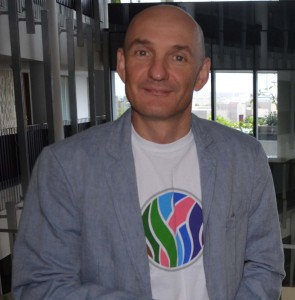 This post is by Mark Thorley, a member of the CODATA Executive Committee and Chair of the CODATA Data Policy Committee.
This post is by Mark Thorley, a member of the CODATA Executive Committee and Chair of the CODATA Data Policy Committee.
It is an honour and a privilege to be invited to become a member of the International Council for Science’s Committee on Freedom and Responsibility in the Conduct of Science (CFRS).
The CFRS serves as the guardian of the ICSU Principle of the Universality of Science and undertakes a variety of actions to defend scientific freedoms and to promote integrity and responsibility in the conduct of science. The universality of science in its broadest sense is about developing a truly global scientific community on the basis of equity and non-discrimination. It is also about ensuring that science is trusted and valued by societies across the world. As such, it incorporates issues related to the conduct of science; capacity building; science education and literacy; the relationship between science and society; and crucially, equitable access to data and information and other resources for research.
My contribution to the work of the CFRS will be built on my broad experience and expertise in open access, research data management and related policy development and implementation. Key to this is my understanding of the landscape of open access and research data, from the technical through to the strategic, and the resulting implications for researchers and research organisations.
The provision of open access to scientific results is an important part of the responsibility of science in the modern age, as both a hedge against scientific fraud and for developing science as a public good. Open research data are both a pre-requisite of supporting open and transparent research, and also an opportunity for new areas of research and innovation. I am keen that through the work of the CFRS and CODATA we can develop robust and pragmatic guidance for the research community on how to ensure that research data are wherever possible made openly available for use by others in a manner consistent with relevant legal, ethical and regulatory frameworks and norms.
 I have been working in research data management since 1990 and in open access policy development and implementation since 2006, and am currently Head of Science Information for the UK’s Natural Environment Research Council. I am one of the Research Council UK policy leads in Open Access and scholarly communications, where I have been prominent in the development and implementation of RCUK’s Open Access policy. I am a member of the advisory board for the Nature Publishing Group journal ‘Scientific Data’, and was one of the experts who contributed to the recent ICSU statement on Open Access to scientific data and literature and the assessment of research by metrics. I also helped develop the OECD’s Principles and Guidelines for Access to Research Data from Public Funding.
I have been working in research data management since 1990 and in open access policy development and implementation since 2006, and am currently Head of Science Information for the UK’s Natural Environment Research Council. I am one of the Research Council UK policy leads in Open Access and scholarly communications, where I have been prominent in the development and implementation of RCUK’s Open Access policy. I am a member of the advisory board for the Nature Publishing Group journal ‘Scientific Data’, and was one of the experts who contributed to the recent ICSU statement on Open Access to scientific data and literature and the assessment of research by metrics. I also helped develop the OECD’s Principles and Guidelines for Access to Research Data from Public Funding.
I am also a member of the Executive Committee of CODATA, and I see this appointment very much as recognition of the work that myself and colleagues within CODATA have done to develop the agenda of open research data.
My appointment to the CFRS is for three years from this October.
More information about the work for the CFRS is available from the ICSU website (http://www.icsu.org/freedom-responsibility/cfrs).


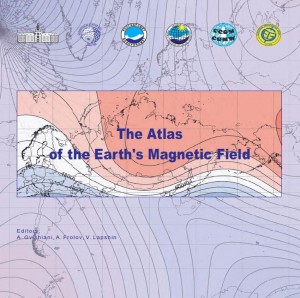
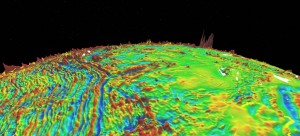
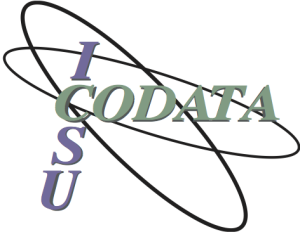
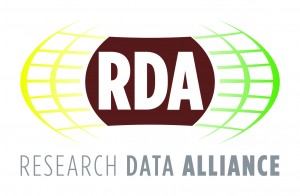
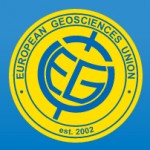

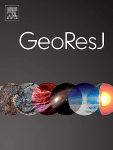 Opening the meeting in Vienna, Dr Elizabeth Griffin (Chair, DAR-TG) explained and illustrated the considerable scientific importance of recovering scientific information that was recorded before the electronic age, and what CODATA (through its TG) was attempting to do towards stimulating many more data recovery efforts. The visibility which the evening afforded to the DAR-TG and to CODATA itself was very valuable, the event presenting a memorable complement of rationale, endeavour and achievement. Open publicity of this nature is one of the goals of the DAR-TG; it is essential for spreading the word about undertaking and (then) coordinating efforts to bring archived, nearly lost, or almost unreadable data back into full service.
Opening the meeting in Vienna, Dr Elizabeth Griffin (Chair, DAR-TG) explained and illustrated the considerable scientific importance of recovering scientific information that was recorded before the electronic age, and what CODATA (through its TG) was attempting to do towards stimulating many more data recovery efforts. The visibility which the evening afforded to the DAR-TG and to CODATA itself was very valuable, the event presenting a memorable complement of rationale, endeavour and achievement. Open publicity of this nature is one of the goals of the DAR-TG; it is essential for spreading the word about undertaking and (then) coordinating efforts to bring archived, nearly lost, or almost unreadable data back into full service.